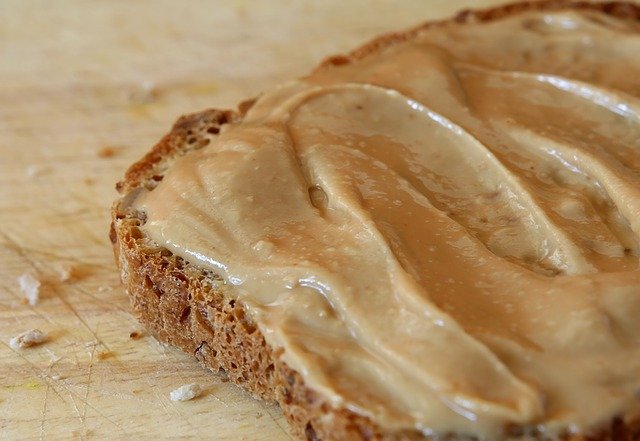Peanut butter has always been held near and dear to our hearts, but as more people are diagnosed with peanut allergies, this notion is slowly falling by the wayside. Luckily, there are other varieties of nut butters on the market with similar tastes, textures, and just as many health benefits. Almond butter, for instance, makes a great substitute for peanut butter, only with a slightly sweeter taste. But while almond butter has its merits, is it necessarily healthier? The answer isn’t so simple. In order to determine the which of the two are more nutritious, we’ll take a look at both of their nutritional value to help determine which is truly healthier.
The Case For Nut Allergies

Gossip/Shutterstock
Despite the fact that both peanuts and almonds are often paired together, peanuts are actually legumes, not nuts. Almonds, on the other hand, are tree nuts, a hard-shelled nut that grows on a tree. A person can develop an allergy to peanuts and tree nuts.
Nut allergies affect approximately 1 percent of the U.S. population and doesn’t necessarily mean that a person is allergic to all nuts, just particular ones. When it comes to allergies caused by almonds, some cases may be severe and life-threatening, or less severe but may still cause itchiness and other symptoms.
Conversely, peanut allergies are one of the most common types of allergies and therefore also likely to cause a reaction when someone with the allergy touches, consumes, or inhales a particular food that contains peanuts. With both tree nut and peanut allergies, it is important to take precautionary measures to prevent anaphylactic shock. If you suspect you have an allergy to either tree nuts or peanuts, it’s important to consult your doctor.
Peanut Butter Vs. Almond Butter

Both almond and peanut butter are created from crushed, deshelled peanuts or almonds. The oily nature of both types of nuts is what helps impart its smooth, creamy texture. You can purchase nut butter at your local grocery store or choose to prepare it at home. Whichever method you choose, nut butters are high in nutrients.
Peanut butter contains a dense amount of protein, is low in sugar and contains a substantial amount of vitamins and miners. It is high in lysine, which assists with collagen production. However, it is low in the essential amino acid methionine, one of the main essential amino acids for growth and tissue repair. Almond butter, on the other hand, contains three times the amount of vitamin E that’s found in peanut butter, as well as iron and 7x more calcium, both sources for rebuilding bones and tissue.
Almond butter delivers at about 196 calories, 6.71 grams of protein, and 17 grams of fat per two tablespoons. In comparison, peanut butter contains approximately 7.14 grams of carbohydrates, 7.11 grams of protein and 16.44 grams of fat per two tablespoons. Both peanut butter and almond butter contain vitamins include biotin, vitamin B, iron, potassium, selenium, and zinc. Though both kinds of nut butter contain a similar nutritional value, almond butter has slightly more vitamins and minerals, as well as fiber content.
Additional Nutritional Comparisons

Nutritional Value of Peanut Butter
*Daily Value per 100 grams
- Vitamin E: 9.05 milligrams
- Vitamin B3 (Niacin): 13.69 milligrams
- Vitamin B6: 0.45 milligrams
- Sodium: 180 milligrams
- Protein: 3 grams
- Sugar: 13 grams

Nutritional Value of Almond Butter
*Daily Value per 100 grams
- _Calcium: _80 milligrams
- _Iron: _1.08 milligrams
- _Sodium: _ 65 milligrams
- _Protein: _21.88 grams
- _Sugar: _0
When it comes down to being “better,” it’s all a matter of opinion. Both almond butter and peanut butter are packed with nutrients, so either one is a great healthy choice. But no matter which one you choose, always opt for the healthiest selection that is low on sodium and sugars and is high in vitamins and minerals.
